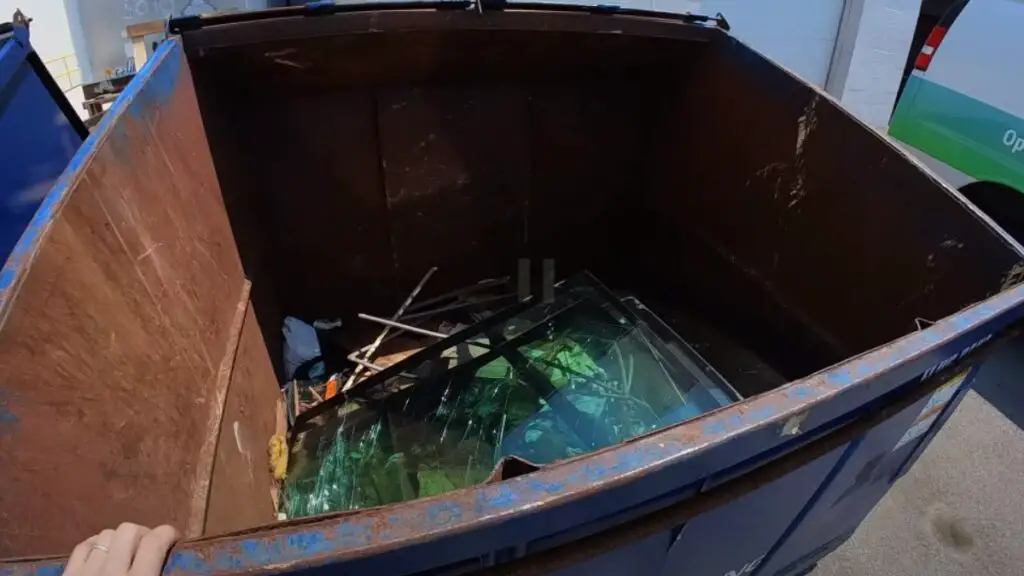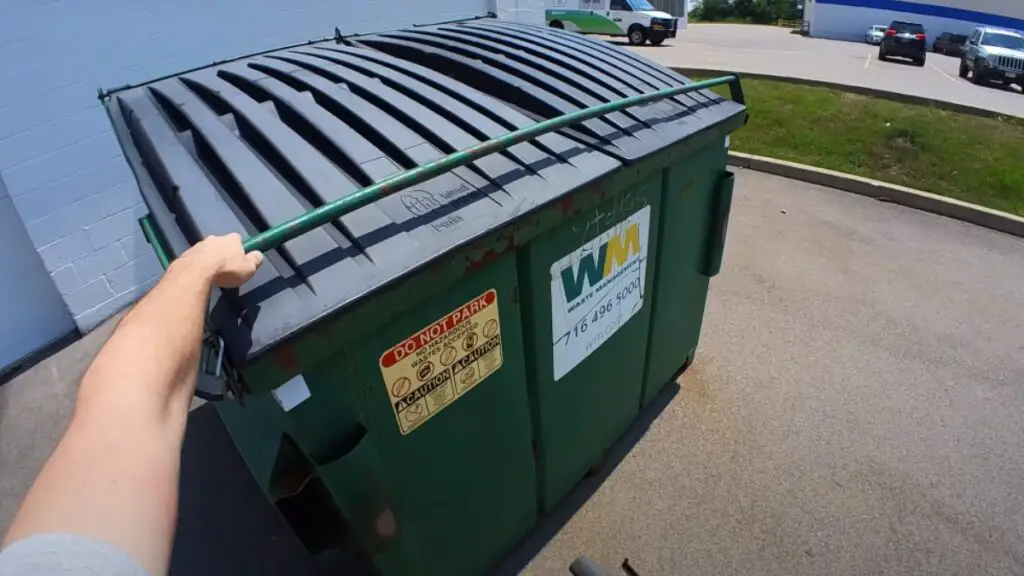In the Beaver State, Oregon, a surprising and resourceful practice has taken root: dumpster diving.
The dumpsters of Oregon have become unexpected treasure troves; with over 4.2 million residents discarding an average of 7 pounds of waste daily.
So, in this article I’ll share whether dumpster diving in Oregon is legal, best time, location, and the earnings potential.
Let’s begin!
Dumpster Diving in Oregon

Dumpster diving, although unconventional, can be a viable activity in Oregon for obtaining items.
The Beaver State, particularly in urban centers like Portland and Eugene, is known for its eco-conscious communities that practice recycling and repurposing extensively.
As such, dumpsters in these regions often contain a variety of discarded items that might still hold value.
In fact, Portland, is a dumpster diver’s paradise; with its numerous thrift stores and flea markets
In 2015, there was even a reported case of a man finding a painting worth $15,000 in a dumpster behind an old building.
And in Eugene, which boasts over 20 strip malls, dumpster diving can yield everything from furniture to electronics, oftentimes in decent condition.
Is Dumpster Diving Legal in Oregon?
Dumpster diving is generally legal in Oregon, as there is no explicit state-wide law prohibiting it, although the legality can vary in different places.
For example; in Portland, it is legally allowed to salvage items from curbside bins, offering an interesting perspective on waste management.
However, when it comes to dumpsters on private property, trespassing laws come into play.
As per the Oregon Revised Statutes 164.245, trespassing can lead to a Class C Misdemeanor which carries a maximum fine of $1,250 and 30 days in jail.
It’s important to note that individual establishments may also have policies against dumpster diving.
Therefore, you can seek permission from the owner before venturing into any privately owned dumpsters.
Is Dumpster Diving Illegal at Night in Oregon?
Dumpster diving is not explicitly illegal in Oregon, even at night. However, you should remember that specific city regulations could make this activity illegal or liable to punishment.
For example, trespassing on private property to access trash containers can lead to legal consequences.
According to the Oregon Supreme Court (State v. Lawson/James, 289 Or 591, 1980), once an item is discarded as trash, it is considered public property.
So, provided you’re not trespassing on private property, you are within legal rights to dumpster dive.
Best Places to Dumpster Diving in Oregon
Oregon is a treasure trove for dumpster diving enthusiasts, with a plethora of locations that offer diverse finds.
One of the top destinations is Portland, known for its eco-friendly mindset, which translates into exceptional dumpster diving opportunities.
In the city’s Hawthorne District, many have found usable furniture, discarded books, and even food that’s still fresh.
Moreover, Bend is another promising location with its many business complexes and apartments.
Eugene, known for its large student population, experiences a substantial turnover of usable items, especially at the end of each term.
Best Time for Dumpster Diving
The best time for dumpster diving in Oregon depends on the location and the specific items you’re seeking.
However, generally you should go early in the mornings or late at night when businesses are closed.
This is typically between 2:00 AM and 4:00 AM, and again between 5:00 PM and 7:00 PM.
In 2019, for instance, Portland reported a 10% increase in recycling, which can potentially increase the chances of finding useful items.
How Much Money Can I Earn from Dumpster Diving?
The earnings from dumpster diving can vary based on factors like diving frequency, chosen locations, and time spent selling finds.
In Oregon, dumpster divers like a part-time job, dedicating about 20 hours a week, can earn anywhere from $200 to $800 per month.
This is based on the assumption that they find items like scrap metal, electronics, furniture, and other goods that can be sold or recycled.
However, you should note that these numbers fluctuate based on market rates for recycled goods and second-hand items.
Dumpster diving is not a consistent or reliable source of income, and it comes with its own set of risks and challenges.
So, if you are planning to dumpster dive at Idaho, Vermont, Wisconsin, or Minnesota; first you should check the state laws before going to your hunt.
What Should I Pick from a Dumpster?
First, furniture is a common find and can often be in good condition or require minimal refurbishment.
According to a 2018 report from Oregon Metro, approximately 20% of waste in landfills is furniture.
Second, electronics are frequently discarded while still functional or repairable; the Oregon DEQ reported around 8,000 tons of electronic waste in 2019.
Finally, recyclable materials can also be found in abundance.
Oregon residents recycle at a rate of 37%, leaving a significant amount of recyclable items, like glass, paper, and metal, in dumpsters.

Frederick Perez is the founder of Scrape Dude. He loves exploring and finding hidden treasures in unexpected places. Frederick has been dumpster diving and gold panning for years, turning his hobby into our website to share his adventures. He’s known for his friendly advice and exciting stories, inspiring others to discover the joy in these unique hobbies. His expertise makes Scrape Dude a trusted and fun place to learn and explore.


